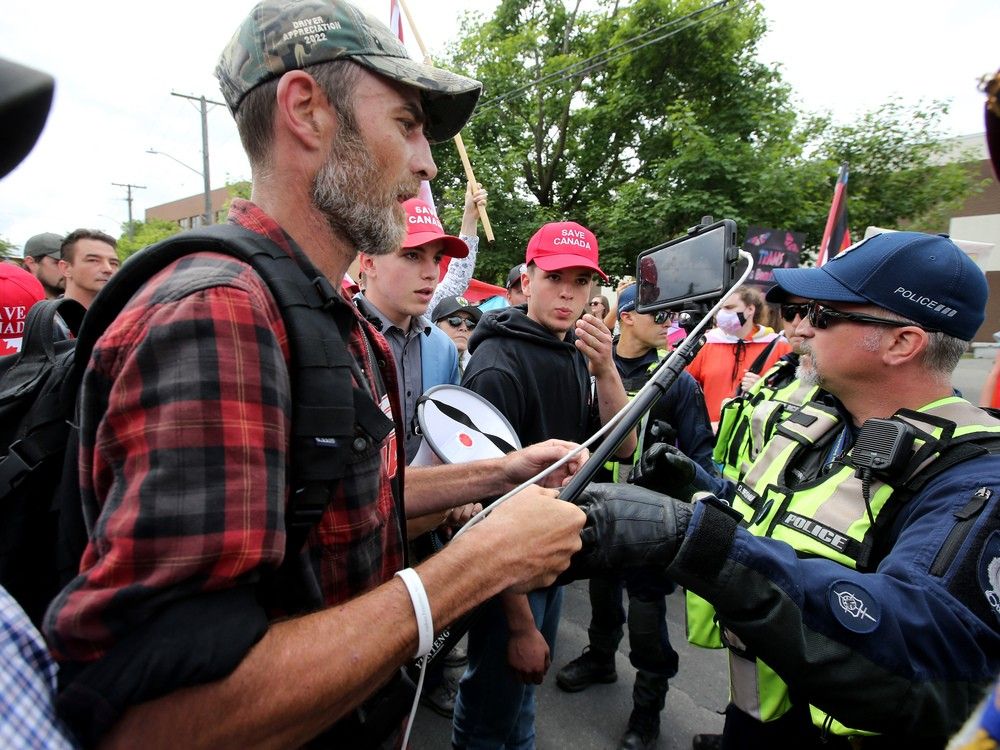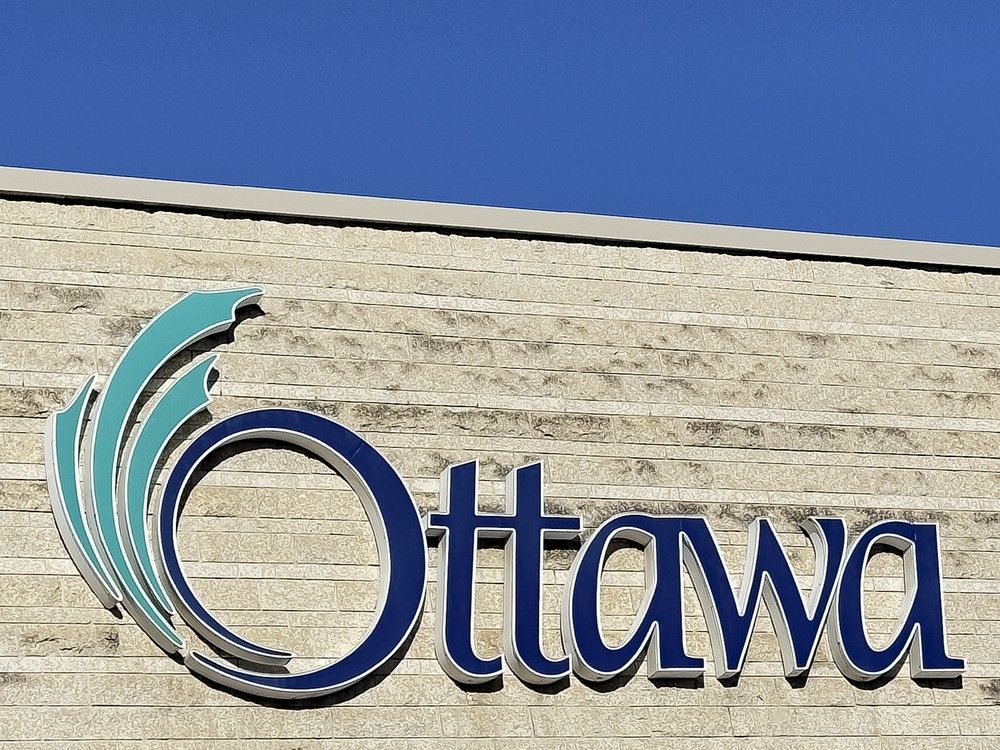Ottawa city councillors heard an array of competing views on a so-called “bubble bylaw” that would restrict nuisance protests from vulnerable spaces as 42 public delegations signed up to speak at a marathon committee session Thursday.
Coun. David Hill introduced a motion at the May 15 meeting directing staff to develop a “vulnerable social infrastructure bylaw” within a nine-month timeline.
The bylaw would prohibit “specified nuisance demonstrations within a defined distance of vulnerable social infrastructure,” which would include schools, hospitals, long-term care facilities and places of worship.
A “nuisance demonstration” would be clearly defined as “activities that a reasonable person would consider intimidating or obstructive to the safe access and use of such vulnerable social infrastructure,” Hill’s motion reads.
Coun. Sean Devine countered with a motion at the joint meeting of the city’s emergency preparedness and protective services committee and the public works and infrastructure committee on Thursday calling for a pause on the bylaw while awaiting the outcome of active court challenges in other cities and potential movement on provincial or federal legislation.
Mayor Mark Sutcliffe endorsed the bylaw in a social-media post earlier this week. Devine responded by calling the proposal a “costly and potentially fruitless process that could put the city at legal risk. Besides, the feds and province are each already advancing legislation on this matter.”
Hill’s motion called for exemptions for lawful labour union protests, strikes and pickets plus exemptions for other internal disputes involving the owners or occupants of the vulnerable social infrastructure. The proposed bylaw would apply to government-owned property “only where the primary function of the building or facility is to provide medical care, education or long-term care or congregate care services.”
Hill’s proposal would “explicitly exclude from its scope buildings such as embassies, Ottawa City Hall, and the Parliament of Canada.”
In October 2024, councillors voted 23-3 in favour of a feasibility study on the bylaw.
Staff returned with an update this week highlighting the risks of legal and Charter challenges to the bylaw and recommended a “cautious approach” that “should be informed by research, engagement and consultation.”
The enactment of such a bylaw “carries risk” of legal challenges, staff warned. Restricting demonstrations from certain areas of Ottawa “could be criticized as an unreasonable infringement on the right to freedom of expression and the right of peaceful assembly guaranteed under the Canadian Charter of Rights and Freedoms.”
The staff report noted similar regulations in other cities that were “relatively new” and “largely untested” at the municipal level.
No charges have yet been laid under the City of Vaughan’s bylaw, which was passed in 2024, and the City of Calgary is defending two legal challenges to its safe and inclusive access bylaw — the first bylaw of its kind in Canada when it passed in 2023.
One of those court challenges in Calgary is calling for a judicial review of the entire bylaw, the staff report states, while the second is an appeal of a conviction under the bylaw.
“Staff caution that it would be prudent to assess the outcome of those proceedings before moving forward with similar regulations here,” the report stated. “Additionally, the effectiveness of municipal bubble-zone regulations in preventing or mitigating harassment around vulnerable infrastructure sites or services remains unknown.”
Committee members heard from nearly half of those registered to speak as delegates, including representatives of the faith communities, legal experts and community activists. The meeting, which commenced at 9:30 a.m., extended past its designated 5:30 p.m. cutoff and was to reconvene Friday morning to hear more opinions supporting or opposing the bylaw.

Councillors repeatedly cited the 2023 anti-trans protest near schools on Broadview Avenue — and a considerable counter-protest — as reasons for caution and consideration when enacting any bylaw restricting the right to freedom of assembly.
Coun. Laine Johnson raised her concern with the “unintended consequences” Hill’s motion could present, along with her concern about the bylaw’s “actual applications.”
Richard Robertson of B’nai Brith Canada voiced his support for the bylaw, arguing that amendments to the Criminal Code “will not sufficiently address the non-criminal activity at nuisance protests … nor is it within the responsibility of the federal government to do so.
“The creation of a municipal bylaw will fill the gaps left by either existing or future federal legislation,” Robertson told the committee.
Ragini Sharma of the Canadian Organization for Hindu Heritage Education highlighted the rise in hate speech targeting the Hindu community and said she was “deeply concerned that the existing criminal laws are inadequate to protect such vulnerable spaces.”
Mark Sandler, a prominent defence lawyer representing the Alliance of Canadians Combatting Antisemitism, called the bylaw an “important issue for a municipality to wrestle with” and urged councillors to take guidance from existing laws and jurisprudence.
Councillors raised some concerns over the language of Hill’s motion and said any legislation would need “clear definitions” of what constituted a nuisance protest and what would qualify as a vulnerable space.
Paul Champ, another prominent lawyer who successfully argued for an injunction to halt the horns from honking during the 2022 convoy protest, spoke to the committee to voice his opposition to the bubble bylaw.
“Too often protests are seen as an inconvenience or an annoyance, but we have to understand that we should be embracing protests and understand that, when people come together and organize together, it’s an inherently good thing in a democracy,” Champ said.
He urged the committee to “respect and protect the right to protest” and said the courts had already ruled that public streets were “the quintessential venue for protests.”
The Ontario Court of Appeal has ruled that public streets are a place “where expression of many varieties have long been accepted,” Champ said.
“Protests that are loud, angry and which make some people feel uncomfortable … do not justify more laws or prohibitions,” Champ said. “When you’re going to restrict Charter rights … you need to do so based on an evidentiary record … (and) we don’t have that evidentiary record here in Ottawa.”
Champ echoed the concerns of dissenting councillors and said “the tools already exist to deal with protests that amount to unreasonable interference.
“We already have the Criminal Code, bylaws and we have injunctions,” Champ said. “So, respectfully, I think, if we’ve got issues with problematic protests, it’s an enforcement problem, not a law problem, as we observed in the Freedom Convoy.”
The committee will reconvene Friday morning to hear more public delegations and members will then ask questions of city staff. Votes on Devine’s motion and Hill’s motion are expected to follow.
Our website is your destination for up-to-the-minute news, so make sure to bookmark our homepage and sign up for our newsletters so we can keep you informed.
Related
- Train Yards collision victim lived just a few blocks away
- Hey, Michelin! Ottawa restaurants deserve attention, too, city’s top chefs say



